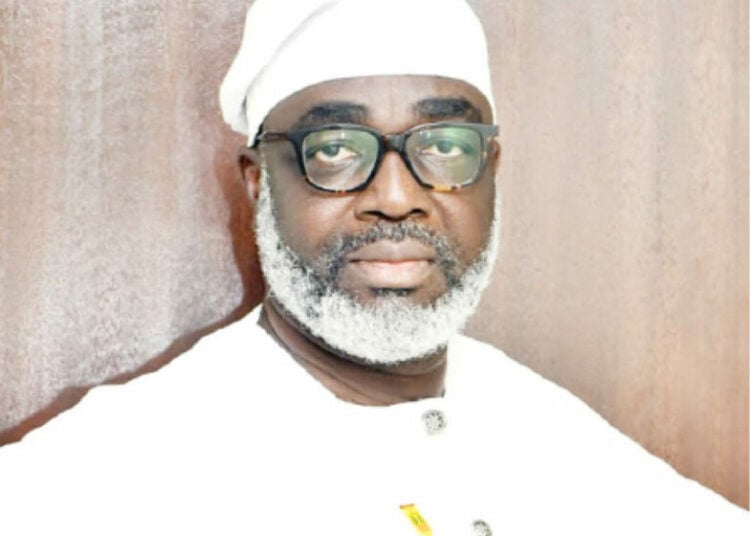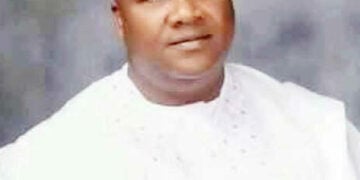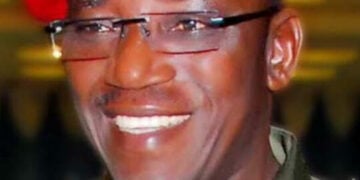Having recently concluded your tenure as CITN President, you now transition to a judicial role as a Tax Appeal Tribunal Commissioner. What is your perspective on moving from advocating for tax professionals to a position that requires impartial tax dispute resolution?
We need to put many things in perspective. One, even while I was the President of CITN, I had become a member of the Tax Appeal Tribunal. We were inaugurated, specifically in February. So, we started our job in March. So, I ended my tenure as the president of CITN on the 4th of June this year. Now, whichever we look at it, whether as a tax professional or a Commissioner in the Tax Appeal Tribunal, you are still a professional. You need your pedigree or background as a professional to even be a Commissioner in the Tax Appeal Tribunal in the first instance. And of course, it’s an extension of what I’ve been doing in CITN over the years.
The primary advocacy job of the Charter Institute of Taxation of Nigeria is to ensure that the tax base is expanded equitably. And I will explain. If you are a taxpayer, it is the job of CITN to educate you on whether you are a member of our institute. If you get a liability, an assessment of N100, it is the job of CITN to make sure, to advise you, to counsel you, that you should pay that 100 Naira. Don’t pay N99. It’s also the job of CITN to ensure that the revenue agencies send you a liability above what you ought to pay to ensure you are objectively assessed. It is the job of CITN to support you and give you the knowledge. So we balance it. Because at the end of the day, professionalism does not give you the room for discretion.
Tax is law. So you don’t, no matter who you are, the chairman of FIRS cannot stand up today and say, the correct company income tax rate is 30%, because he’s my brother from my town, go and pay 25%. No, he doesn’t have that discretion. So, what I’ve been doing for several years, as a member of CITN, and when I became the president, and even now, in the Tax Appeal Tribunal, is to ensure that we balance the equation, the payer is not oppressed, and the government gets its fair share of what it’s supposed to get.
Drawing from your experience with the CITN, what specific changes or reforms would you like to see implemented within the Tax Appeal Tribunal to improve the efficiency and fairness of the tax justice system?
The government should not use good money to chase bad money. I put that statement in quotes, in the sense that, if you want to collect, let’s say, N50,000 from a taxpayer, and you are unnecessarily spending N100,000, 200,000, you need to watch it. I will help to ensure equity, justice, and fairness within the system.
I know the TAT has been recognised correctly in the new tax laws. So, once you have the backing of the law, then of course, the job of TAT, just like I’ve said about the advocacy job of CITN, is to ensure that they balance it to ensure that you pay what you are supposed to pay. The government shouldn’t burden the taxpayer with technical things. Because taxation is technical, we must take it into account. And TAT, by its nature, does not bog itself down in technicalities. And that’s why a non-lawyer is allowed to appear in TAT.
The TAT aims to provide quicker and more accessible dispute resolution. How will your specific tribunal ensure delays and bureaucracy do not hamper its proceedings?
The revenue agency also needs justice. The majority of people don’t like tax collectors. Not because the tax collectors are bad, but because people don’t want to pay taxes. Because when you pay tax, it’s a reduction of money in your purse. So now when we talk of justice, it’s justice for all parties. And delay does not endanger confidence in terms of justice. So I know by virtue of the structure, the philosophy behind TAT, that delay is not part of it. And I know the TAT has been set up to be serious. By that, we must do things better and faster.
But again, you know government officers don’t win in public debate. Most of the time when things don’t go right, people believe it’s the government officer who has not done the right thing. It is not so. So people come through the judicial system, starting from TAT, to frustrate or to delay payment of taxes. That we also know within the system. Not as a commissioner, but as a tax practitioner. I know that.
Nigeria is undergoing significant fiscal and tax policy reforms. How do you assess these reforms’ initial impact on the tax authorities and taxpayers?
Well, my assessment will start with what we know has existed in the country over the years, and that is the trust deficit between the populace, not just the taxpayers alone, the populace in general on one hand and the government. So generally, what we have now is a landmark decision by the President that has culminated in four different acts of the National Assembly today. By the coming of this federal act, we have done a lot of home cleanings, sanitised the environment, and put in perspective what everybody is supposed to do. This is a major step in the right direction.
If you compare that some of our task laws are so archaic, and they are faced with the reality of this country, as we speak. The governors are the people we need to appeal to, to make sure that they do the right thing. So, properly implemented, the tax laws may be the best action of this government in these four years in office.
So, how will the tax laws impact the government and the taxpayers?
For taxpayers, certainty is very critical. You need to know who you appeal to, what you appeal to the federal and state, and the rate and tax type. So, once that certainty is there, then the taxpayer is good. The impact? It now means that a low-income earner who used to pay a part of his monthly income as a deduction in taxes like PAYE, will now have to take home everything and spend it on other things, increasing his purchasing power. So, the benefit to the taxpayer is that a lot of relief has come in. And so there will be more money, particularly for the low-income earner. Another thing to the taxpayer is that those who are successful, who this country has been good to in one way or another, pay slightly higher, which is how it’s done outside the country. So you will see people receiving more than N50 million in terms of individual, paying as high as 25 per cent. It is good for the taxpayer, particularly the masses, to know that ‘the government is thinking of me’. It’s not just putting everybody together and saying, Come and pay taxes.
For the government, I see the federal taxes as an instrument for ease of business. With the clarity we have now, we have ease of doing business. And so once there is ease of doing business—and you agree with me that Nigerians are enterprising, hardworking, and committed—more investments will come in, and there will be more economic activities for jobs and wealth creation. A lot of things have been resolved in favour of the companies.
The companies’ working capital will also improve, and this will reduce the pressure on companies to approach the bank to collect loans. So you see, it’s a system. This is helping the other.
What are the most prevalent types of tax disputes you anticipate seeing before the new tribunal, and what can be done to address these issues preemptively?
Well, the National Assembly cannot make a law that will cover everything. In law, we say covering the feet. It’s impossible to cover the feet when you make a law as massive as they have done this time. And I must use this opportunity to give kudos to the National Assembly and all the various government agencies that work on that document. Now, and I tell you, no document is perfect in life. I’m happy to state that even before now, we were patching our existing tax laws.
There is no way that there will be no new development during the implementation. And we recommend that the president, through the instrumentality of the National Assembly, can always use one or two Finance Acts to correct whatever is there. But as we speak, I know there are one or two things that we have seen in the Nigerian Tax Act, and another act that is not aligning. Again, I know work is ongoing to come up with a lot of surplus because the tax act as passed by the National Assembly, cannot fully explain the process of implementing those acts.
So, FIRS, by virtue of their establishment, have the discretion, the right, and the legal backing to come up with circulars from time to time to explain certain ambiguous areas of the task law. So, it’s a great country. The fact that Nigeria was able to overcome the initial divide on the VAT shows that Nigeria has sufficient residents to solve its problem.
Small and medium-sized enterprises (SMEs) often face the biggest challenges with compliance and disputes. How will the new reforms ensure fairness and a better time for small businesses, not just large corporations?
Well, thank you. This falls within what we call the nuisance tax or the role of the non-state actors. And I must tell you, as a Nigerian, I’ve lived almost all my life in Lagos. So I have a very good understanding of Nigeria. My greatest fear with this new task law is the political will to deal with the non-state actors. Once we have that, Nigeria will be great.
Even without the new laws, you would agree with me that FIRS has its clearly defined tax laws. You can count them. They don’t go after the vulkanizer or akara seller. But when you move from FIRS and go to the states, that’s where the problem starts. And most of the states do it reasonably well. They also know that. But I don’t want to, now that we are talking about the state, I don’t want to mention it, so I don’t look biased. However, the issue of non-state actors, the money for this, the money for that, the money for father, the money for mother, is within the premise of the states. A lot of the state governors are doing reasonably well.
So we are not just condemning them. We have great governors in Nigeria. They need to look into this. Because the benefit of this headache of almost two years plus will be lost in Nigeria the moment we allow the non-state actors to be on our streets—not just the state governors but also the local government chairman, not just these two sets of people but the security agencies. The police must not see what is wrong within the system and look the other way.
There is a trust deficit on TAT. Why should Nigerians or Nigerian taxpayers have confidence in the tribunal now?
The system is a lot focused on the people, the taxpayers. That is the truth. There’s an administrative resolution. There is no bias in the adjudication of cases. The system is transparently run. So, if you are uncomfortable, you can approach the tax appeal. Most people don’t want to tell the truth. I need to say this. Culturally, some of us don’t like to go to court. Nigeria is not a banana republic. This is the best country in the world. So please go and test the system. If you are not comfortable, go to the higher court.
As President of the West African Union of Taxpayers, what is your assessment of the tax system in the region?
For a very long time, Nigeria was between six and seven per cent of the tax-to-GDP ratio. But recently, that has moved to 10.8 per cent. This is due to the information coming out of government offices, which moved to 13 per cent in 2024. Now, the West African average is 15 per cent.
So statistically speaking, what does that tell you? These people comply more than we do. Not that they are richer than us. It’s about compliance. But 15 per cent, even the average in West Africa or Africa, is still low. So we need to do more in this area. There are reasons why citizens don’t comply.
We can’t close our eyes to that. And the leader of the reasons for non-compliance, as I know it, is this trust deficit. People don’t trust the leaders. Because we have been giving you money for 10 years ago. You didn’t account for it. So, how do you want me to provide you with money today? That trust deficit is a major reason. The cultural background from some areas is also an issue.
But in Nigeria, you commit offence, civil or criminal, there’s no consequence. So if there’s no consequence, who wants to be giving money to government? So one of the reasons why people don’t obey law in Nigeria, tax laws inclusive, is because there is no consequence. In these West African countries, as small as some of them may be, there is punishment for bad behaviour, and reward for good behaviour.
My experience in West Africa is that some of them are doing better than us, but generally, we still have a long way to go. So now Nigeria wants to be among those that are doing better in the West African region.
Would you advocate for a technology-enabled tax system or a tax rate increase in the West African region?
No, no, no. Ensure Compliance. I want to send a message to the West African folks. For economies like Nigeria and the whole of West Africa, this is not the time to talk of a rate increase. Don’t go there. Don’t go there because the government has not even done enough to earn the people’s confidence to increase the rate. So don’t go there. Improve your governance, improve your transparency, improve your accountability. Then spend on ICT. Develop the manpower. Give the revenue offices the autonomy they require.
You need to allow the revenue authority to be independent, engage a competent person who can match any revenue officer across the world, engage, give targets, and let them be able to hire and fire the kind of quality staff.
So, what specific tax law reforms would you recommend to West African countries?
The world economy is changing from brick-and-mortar to ICT. A lot of things are going on in ICT. You can’t still use manual methods to think you can track taxpayers. If you are not ahead of them technologically, you won’t be able to collect money. And I think a technology-enabled tax system is the way to go.
The current FIRS chairman is doing very well in this area, and I know he’ll do more by next year. The level of ICT being deployed is capturing much revenue wastage that the previous administration could not. Nigeria is doing very well in that area.
Many stakeholders, including the CITN, have called for modernising the Tax Appeal Tribunal and making its operation technology-based. How will you ensure this is achieved for fast and effective case settlement?
I’m not the spokesman for TAT. TAT has a competent coordinating secretary. But talking about technology, everybody is taking one step or the other to ensure that the right thing is done. Because if you don’t do the right thing, you’ll be left behind. TAT is doing a lot of work because its current position in tax administration and its immediate and long-term future are critical. But like I said, I’m not qualified to talk to those people for them. But the law has recognised TAT properly, maybe more than ever. I know the leaders at TAT are taking steps to ensure that TAT is run efficiently and effectively. No agency of this government will be found, I say this because of other things I know, will be seen to be doing manual labour going forward.
What do you say to some tax professionals who help individuals and businesses underpay or evade tax remittance?
If you are a tax professional, this is the best time to be in the country. A lot of things for all of us, a lot of clients will be coming on board, a lot of work for us, not just the company alone, some individuals, particularly the high network, will be engaging us as their consultants, just like some families have family doctors. They will ask you to help put their books on fairly well. So enough for us, enough for our needs. So don’t go into the area of greed. So once we do that, everybody works together, which will be great.
However, I’ve been hammering on ethics in the past few months. And we can’t say enough about this because ethics define you. It talks about your integrity. So in the course of your work, please do what is right. Do what the law says. Don’t aid and abet. Because we know the end game. You are a part of the tax collection and task payment process. And the moment the circle is completed, the government gets money in its hands and is able to provide a lot of infrastructure.
Don’t jump the gun and want to amass money in a manner that you can’t defend just to satisfy yourself and your family. But the bad road is still there. So let us collectively put this money in the hands of the government. And it doesn’t stop there. The moment we do that, because the law is also a moral burden on all of us to do the right thing. But much more than to do the right thing, once you do the right thing, you also dare to take the government to account. Because I’m taking the government to account, how come you are collecting multiplied by three of what you were collecting before, and we can’t see the impact? Let us collectively also take these governors, the president and the chairman, let’s take them to task.
So this is the time also to do advocacy. But you can’t do advocacy when you are not paying your taxes. So, please pay. Don’t encourage your clients to do funny things. Because at the end of the day, no matter where you go to, your number is your identification, a member of the institute. So we bring you to the panel. Once you are there and you have evidence against you, of course, the consequence can be more damaging. And it is better to err on the side of caution than to look for immediate gain you may not enjoy.





